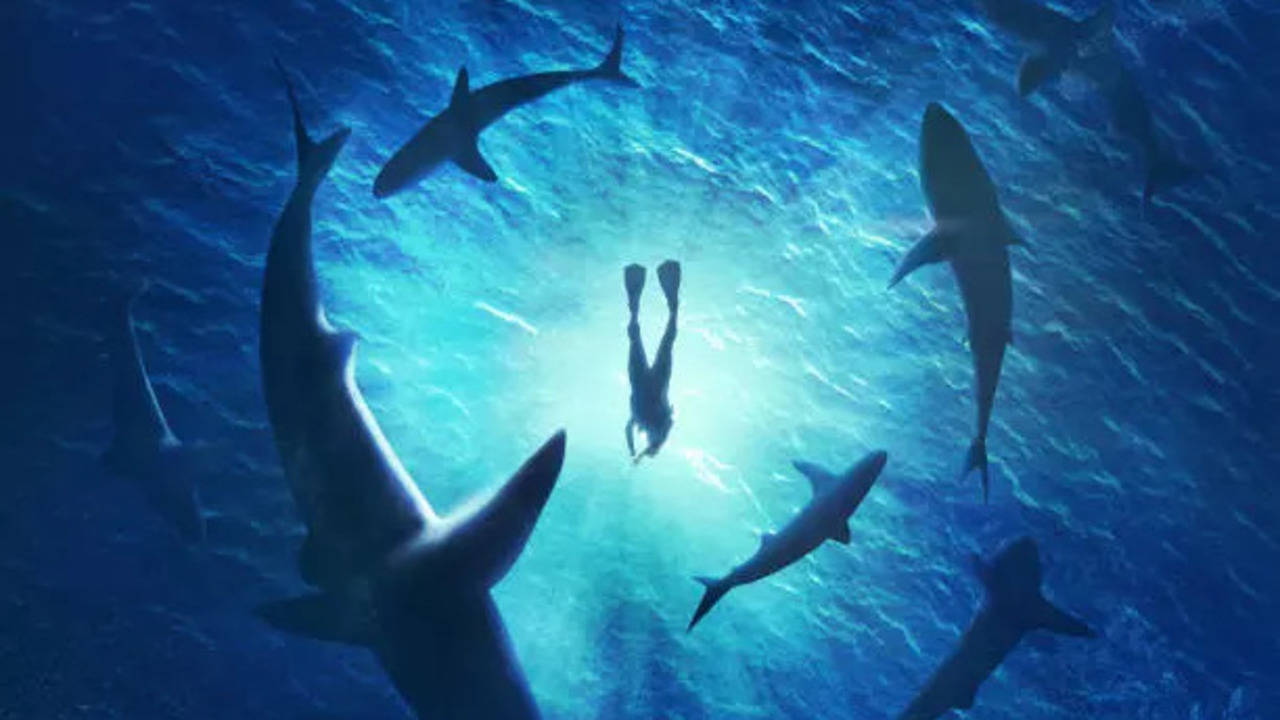Table of Contents

Rumors about a giant freshwater species dubbed the “Kodiak shark” have circulated across social media, particularly on TikTok, sparking widespread intrigue and skepticism. The massive 65-foot species, which was reportedly found in Lake Michigan, is threatening swimmers and lake visitors, according to viral claims and purported video. Authorities, media and specialists, however, reject these allegations as untrue, highlighting the lake's lack of any such species.
Viral Videos Fuel Kodiak Shark Claims
On October 4, 2024, a TikTok video was uploaded that allegedly depicts the recently found “Kodiak sharks” living in Lake Michigan. According to the widely circulated video, the freshwater-only species is the cause of several assaults, with multiple victims reportedly receiving treatment at Michigan’s Corewell Health Lakeland Hospital. The species appears to be particularly suited to freshwater habitats, which is uncommon among known shark species, according to dramatic video.
The assertion immediately gained traction, garnering views and escalating worries about lake safety. Experts, however, have disputed the Kodiak shark's existence and questioned the veracity of the widely shared video.
Hospital, DNR Refute Shark Attack Claims
The rumors were directly addressed by Corewell Health Lakeland Hospital. The hospital has “no record of shark attack patients,” according to an email from hospital spokesperson Amanda Klingbail. Contrary to what the video claimed, there were no known admissions or injuries associated with such attacks.
The Department of Natural Resources (DNR) in Michigan also replied, claiming that there is no proof of a Kodiak shark in Lake Michigan. The DNR has discovered "no Kodiak shark" in the lake, according to an email from Ed Golder, the department's public information officer.
Examining Freshwater Sharks
According to the Australian Museum, there are only three real “river sharks” in the world: the Speartooth Shark, Ganges Shark, and Northern River Shark. However, other shark species, such the bull shark, are known to live in both fresh and saltwater. None have been seen in big lakes in North America, and all are listed as uncommon and threatened species.
Furthermore, there aren't many shark species that can live in non-marine habitats on a permanent basis, making freshwater-adapted sharks uncommon. Lake Michigan and its surrounding freshwater systems are home to none of them.
Kodiak Shark Not Documented by Scientific Institutions
No “Kodiak shark” has been recognized as a species by reputable shark research organizations, such as the Shark Research Institute in the United States. Records of any such species are likewise absent from extensive species databases like FishBase and other marine indexing websites.
Marine biologists claim that the lack of proof is a clear sign that the "Kodiak shark" is a myth. Species discovery follows strict scientific procedures, and results are usually disseminated via recognized press outlets and established channels. There has been no such statement regarding a Kodiak shark.
Animated Elements in Viral Footage
Experts examining the widely shared TikTok movie determined that some of the material was not authentic animal recording but rather artificially changed or generated. Some have pointed to this artificial improvement as another proof that the depiction of the Kodiak shark is fictitious.
Digital editing techniques and the quick dissemination of these tales have increased interest in the mythical Kodiak shark. Credible news organizations, such as the Detroit Free Press and Michigan-based Wood TV, have actively dispelled the idea, nevertheless.
The Science Behind Freshwater and Marine Life Separation
Marine life normally found in saltwater does not exist in Lake Michigan, one of the Great Lakes of North America. Apex predators like sharks are not among the fish that can adapt to both fresh and saltwater, but certain species of trout and salmon can.

